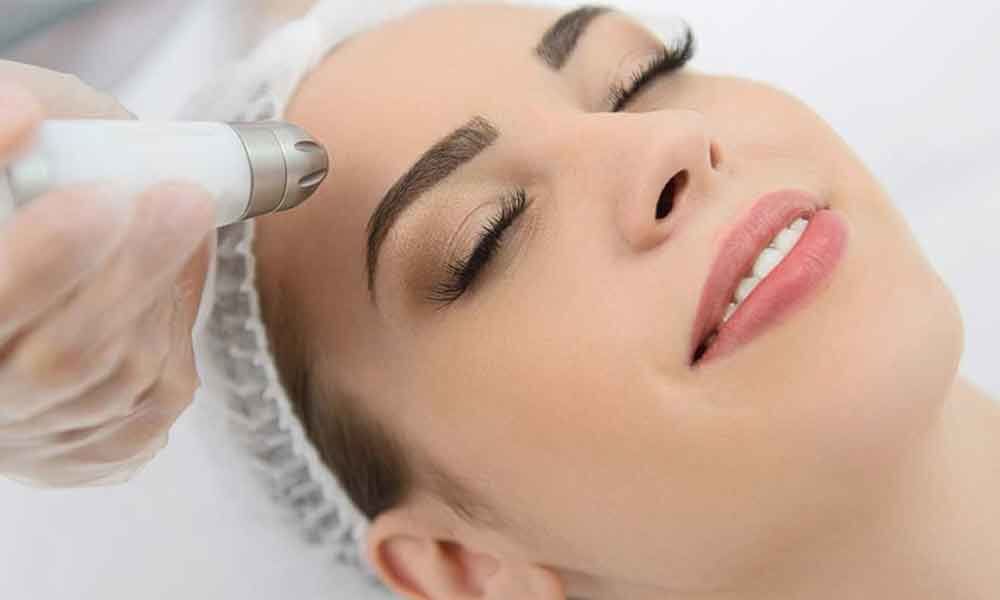Myths and truths about laser treatment

As we move into the new millennium, it is becoming increasingly clear that the usage of Laser and modern technologies are entering the most exciting phase of their development.
As we move into the new millennium, it is becoming increasingly clear that the usage of Laser and modern technologies are entering the most exciting phase of their development.
Laser treatment is commonly used for removing facial wrinkles and skin irregularities. The pulsating beams of light are concentrated on the irregular skin which removes the unwanted skin layer by layer.
In short, it helps in improving the skin texture and the appearance as a whole. Laser treatment should always be performed by trained and certifiedpractitioners under the supervision of the dermatologist maintaining strict hygiene standards.
Laser treatments are different from laser surgery. Laser treatment for beautification does not involve any kind of surgery. Laser surgery is generally related to stone removal and for eye diagnoses.
Here are some popular myths related to laser treatment and the truths behind it:
Myth 1: Laser treatments expose your skin to infections
Truth: Laser treatments don't cause infections as the skin is not cut open to expose the internal layers or veins.
There is very little risk of infection as the treatment's nature is very different.
Myth 2: Lasers expose you to radiation
Truth: Laser treatments are safe asonly light is used in the process and no harmful ionising radiation.
In fact, normal sunlight contains more radiation than most modern lasersused for medical practices.
Myth 3: Lasers can cause burns
Truth: All modern lasers use the theory of selective photo-thrombolysis formulated at the famous Harvard medical school.
This actually means that laser light specifically searches and destroys only the intended target and acts likes magic bullets.
Myth 4: Lasers cause thinning of the skin
Truth: In contrary,skin thickens after Lasertreatments. Skin is a living tissue and due to laser treatment controlled gentle heating in the dermis induces new collagen and elastin formation, replacing the older damaged tissue.
That is why laser treatments have a rejuvenating effect on the skin, reducing wrinkles to become plumper. Of course, your laser therapist should have in-depth knowledge of laser physics to achieve the desired results.
Myth 5: Lasers are unnecessary
Truth: There are many physical problems and diseases for which lasers are indispensable.
There are no medications or creams which can permanently remove scars, birthmarks, tattoos, remove unwanted hair, varicose veins, port-wine stains, etc. Laser technology is similarly indispensable for many other internal medical conditions too.
Myth 6: Lasers cause cancers
Truth: Lasers are used to remove all kinds of skin and other cancers. Laser light does not contain wavelengths which can trigger cancers.
Myth 7: Laser hair treatment is harmful to health
Truth: The depth of laser penetration is 1-4 mm; it reaches only the hair follicles, and then is completely dissipated and does not penetrate deeper! Laser destroys only the hair bulb.
Myth 8: Laser hair reduction hurts
Truth: A little pin-prick, that's all the pain involved in this treatment. But this depends on individual pain barrier.
For particularly sensitive parts of the body like bikini, underarms etc. an anaesthetic cream can be used. It can be applied everywhere,If your pain threshold is less.
Myth 9: Stopping laser treatment can cause skin to deteriorate
Truth: Lasers actually cause skin rejuvenation. It align and tighten the tissuesto make the skin appear younger.
That is why, some persons opt for long-term regular maintenance treatment to keep the skin youthful,even after few sessions with the ageing process.
Myth 10: All laser treatments are the same
Truth: All laser machines are different from each other. Also, two laser therapists cannot adopt exactly the same process of treatments.
The laser machines have to be reliable to get optimal results. More importantly, your dermatologist should not only have thorough knowledge of human skin but also needs to have expertise knowledge of lasersphysics simultaneously.
- Dr. Ajay Rana Founder and Director of ILAMED














